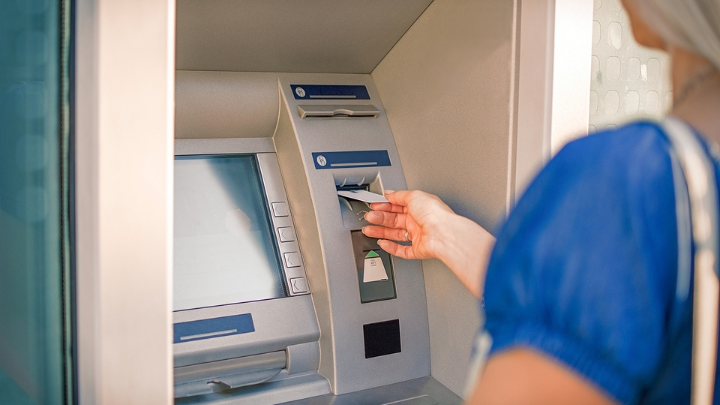
Financial fraud continues to evolve, with scammers constantly finding new ways to target people through phone calls, online shopping, and money transfer requests. Staying informed is your best defense. Here's what you need to know to keep your money safe.
Spoofed Call Scams
Scammers are finding new ways to make their calls sound believable. Spoofed calls are one of the most common types of fraud many people experience, and they can be convincing if you do not know what to look for.
What is a spoof call?
Spoofing is when a scammer manipulates their caller ID and makes it look like they're calling from a local number you recognize or a trusted source like your financial institution, a local business, a family member, or even law enforcement. The caller might sound polite and professional, and sometimes they already know your name.
Their goal is to gain your trust so they can compromise your personal or account information. Once they have that trust, they may also try to convince you to move money out of your account to “protect” it or to resolve an urgent issue.
How to avoid falling victim to spoofing scams:
If you receive an unexpected call where someone is asking for personal information such as account numbers, Social Security numbers, passwords or other identifying information, hang up immediately. Look up the organization's official number yourself and call them directly to verify.
If you think you've been the victim of a spoofing scam, you can file a complaint with the FCC.
Money Transfer Traps
Criminals don't just use phone calls to trick you into sending money. These requests can also come through online pop-ups, emails, or text messages. In many cases, a bad actor will instruct their victim to withdraw large sums of cash from an ATM. Then, they direct them to use that cash to buy cryptocurrency at a Bitcoin ATM, purchase gift cards, or send it through other unconventional methods. They might say this step is necessary to protect your account or to help with an investigation. Once you withdraw and transfer that money, it is nearly impossible to recover.
The rise of crypto related fraud
Cryptocurrency-related scams are becoming increasingly more common, with losses reaching an estimated $9.3 billion in 2024 according to AARP.
Bitcoin ATM fraud specifically has skyrocketed. The majority of losses involving these virtual currency kiosks come as a result of government impersonation, business impersonation, and tech support schemes. Once you scan the QR code provided by the bad actor at the machine, your cash is deposited straight into their digital wallet, and there's no reversing the transaction.
How to stay safe:
Remember that Credit Union of America will never ask you to withdraw money or send funds through cryptocurrency, gift cards, or cash to "keep it safe." No legitimate financial institution, government agency, or business will make this request.
If anyone instructs you to complete a large ATM withdrawal or send money through unconventional methods, stop and contact us directly.
Shop Online Safely
While many find online shopping to be convenient, it's important to remain vigilant. Criminals are creating fake websites and social media ads that look legitimate, but they're designed to steal your payment information.
When shopping online, stick to trusted retailers and reputable websites. Before entering your payment information, confirm that the web address begins with https:// and shows a padlock icon in your browser bar. These indicate a secure connection.
Avoid clicking on links in unsolicited emails or social media ads. Check reviews, return policies, and contact details before making a purchase. If a deal looks too good to be true, it likely is.
If You Think You Have Been Targeted
Even the most cautious person can be caught off guard by a sophisticated scheme. Acting quickly is the best way to protect yourself.
What to do if you suspect fraud:
If you think you have been targeted or have shared personal information, contact us right away. We can help secure your accounts, review transactions, and guide you through the next steps.
View All Articles